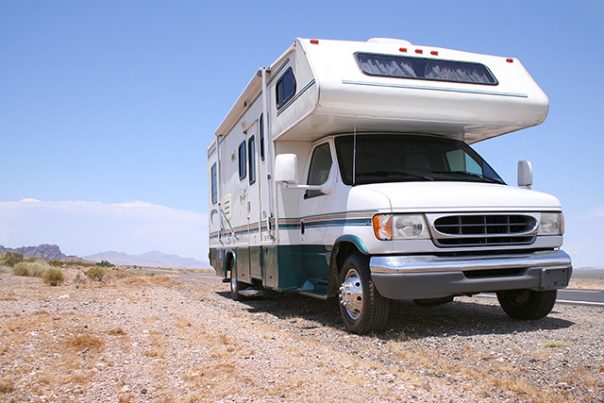The top 5 prepper-friendly states: Factors to consider before going off grid
Thursday, June 13, 2019 by Janine Acero
http://www.bugout.news/2019-06-13-the-top-5-prepper-friendly-states.html

More and more people are adopting the preparedness lifestyle, but not every place is suitable for this kind of living. Before you hit the road and go off-grid, learn which states are the most prepper-friendly. (h/t to ModernSurvivalBlog.com)
Considerations for choosing a state for the prepper lifestyle
When you live a preparedness lifestyle, you are practicing a sustainable, self-sufficient, and self-reliant way of living. From growing your own food and keeping natural remedies on hand to fortifying your home against attackers, a preparedness lifestyle integrates a certain aspiration towards freedom and independence.
So how do you decide which states are best for living a preparedness lifestyle?
Climate, natural disaster risks
Different climates have their own issues, and they call for different adaptations.
Living a preparedness lifestyle includes growing your own food. There are many varieties of plants, herbs, and crops out there, but not every place will be favorable for growing them. You should consider the natural soil condition, the length of growing season, and the amount and frequency of rainfall in a certain area before you move.
Cold climates have a much shorter growing season. Living in a cold climate also requires many things like heating so the cost of living is high. On the other hand, hot climates can get so extreme that outdoor activities are limited. Deserts and arid regions lack rainfall, which means irrigation is a top priority.
If you’re planning on switching to a preparedness lifestyle, northern climates may not be ideal.
Wherever you are, you are bound to encounter severe weather and other natural disasters. Take into consideration common ones like earthquakes, hurricanes, or tornadoes that occur in a given state or region. You should also consider man-made disaster risks like nuclear power plants and military bases.
Population density, politics, like-mindedness
You may encounter more challenges in heavily populated areas than in places with more elbow room. One such challenge is the local and state politics. In a densely populated area, you may need to find out how many people share your political ideologies and have a similar mindset as you.
State politics affects local living. State laws will affect you regardless of where you live in a state. Some states are overly restrictive in some aspects that may affect your preparedness lifestyle positively or negatively. For instance, how does the state rank with constitutional freedoms? What about 2nd Amendment rights and other rights?
Cost of living
This is a big factor to consider. If you want to become a homesteader and decide to give up your full-time job for part-time work or a lesser career, you may find it difficult to live in some regions without your usual earnings.
Then, there is the issue of taxes. Some states have horrible fiscal responsibility and taxes are exceedingly high. Do your homework and look into the tax burdens of a given state or region.
Post collapse
The post-SHTF situation is as important to prepare for as the actual collapse. After the chaos dies down, you must consider where you will live and start life anew. Things to consider include the availability of natural resources and the current population density, among others. (Related: Prepper hacks: 20 Tips for surviving the next chaotic situation with ease.)
Top 5 preferred states for the prepping lifestyle
These five states were voted by preppers as the best states for living a preparedness lifestyle.
- Idaho
- Tennessee
- Montana
- Texas
- Wyoming
Idaho, Montana, and Wyoming can be cold-weather states, which means they may have shorter growing seasons. Micro-climates do exist in these states, depending on the location.
Tennessee and Texas are more suitable for longer growing seasons, but they can get pretty hot and humid in the summer.
There is no perfect place to live, but consider these factors when choosing the best state for living your preparedness lifestyle.
Sources include:
Tagged Under: Tags: bug out, Climate, Collapse, cost of living, disaster, homesteading, natural disaster risks, off grid, off grid / off the grid living, politics, population density, preparedness, preparedness lifestyle, prepper, prepper-friendly states, prepping, self sufficiency, SHTF, survival, survivalist, sustainable living, urban prepping

